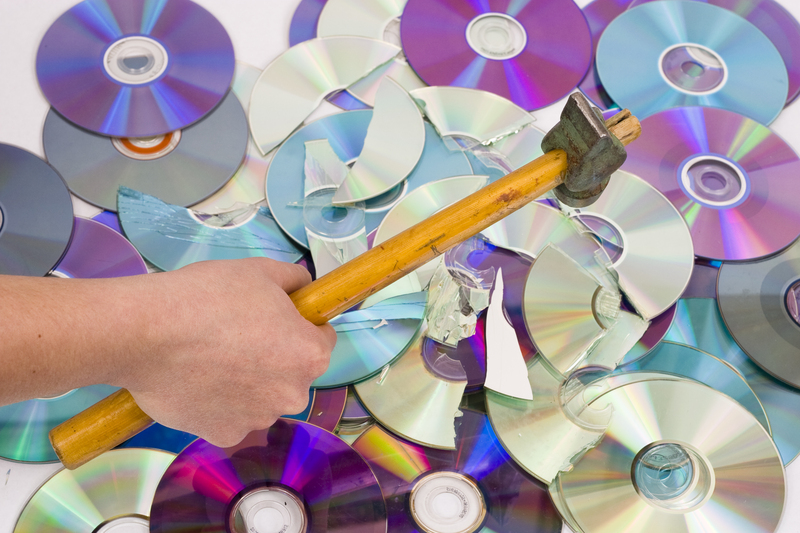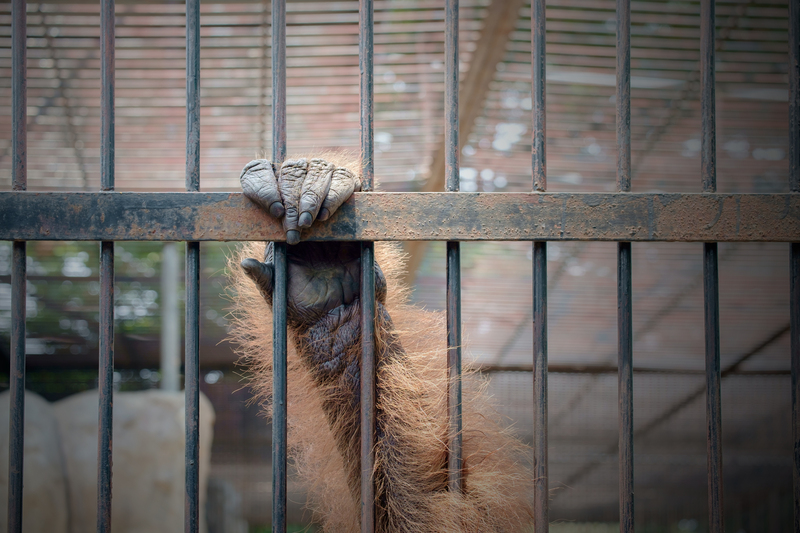Creative Ways to Engage Kids in Recycling Education
Recycling is more than just a buzzword--it's a way of life that has far-reaching effects on our planet's health and sustainability. Introducing recycling education to children at an early age is crucial for nurturing eco-conscious habits that can last a lifetime. However, simply teaching the theory behind recycling can sometimes fall flat. That's why it's essential to explore creative ways to engage kids in recycling education. This article presents a treasure trove of strategies, fun activities, and innovative ideas to make recycling lessons exciting, memorable, and impactful for children of all ages.

Why Teaching Kids About Recycling Matters
Before delving into hands-on techniques, let's take a moment to understand why recycling education for children is so vital. In an age where environmental challenges are at the forefront, teaching kids about sustainability and recycling helps foster a sense of responsibility and empowers them to make positive choices in their communities. Early exposure can also:
- Build lasting eco-friendly habits
- Encourage curiosity and creativity around environmental issues
- Promote critical thinking and problem-solving
- Help reduce household waste
- Nurture a generation of responsible global citizens
Top Creative Strategies for Recycling Education for Kids
If you want kids to genuinely understand and care about recycling, then you need to capture their attention and imagination. Here are some engaging ways to teach children about recycling:
1. Interactive Recycling Games
- Sorting Relay Race: Set up bins labelled with "Plastic," "Paper," "Glass," and "Compost." Provide a mix of clean recyclables and let kids race to correctly sort items. This game builds familiarity with recycling categories and adds a physical, energetic component.
- Recycle or Trash? Create cards or use real items and have kids guess whether they belong in recycling, trash, or compost. Discuss why some items can't be recycled and how to prepare recyclables for collection.
- Recycling Bingo: Hand out bingo cards featuring recyclable items or symbols. Whenever a child identifies and disposes of the corresponding item correctly throughout the week, mark the spot. Winners can receive small eco-prizes!
2. Guided Arts and Crafts with Recycled Materials
Arts and crafts are always a big hit with children. Why not combine creativity with environmental awareness?
- Upcycled Art Projects: Use bottles, cans, old magazines, or cardboard to create sculptures, mosaics, jewelry, or masks. This demonstrates the value of reusing materials.
- DIY Musical Instruments: Transform paper towel tubes, empty cans, or boxes into drums, guitars, or shakers. Let kids decorate their instruments and create a "Recycled Orchestra."
- Eco-Friendly Gifts: Encourage children to make gifts from reusable items, helping them see the beauty in repurposing instead of throwing things away.
3. Storytelling and Books About Recycling
Stories can make recycling education memorable and meaningful for children. Look for illustrated books that focus on the journey of recyclables, environmental heroes, or imaginative tales about cleaning up the planet. Use dramatic storytelling or puppet shows to bring these tales to life, making abstract concepts more understandable and fun.
- The Adventures of a Plastic Bottle (by Alison Inches)
- Michael Recycle (by Ellie Bethel)
- I Can Save the Earth! (by Alison Inches)
4. Recycling-Themed Field Trips
Seeing is believing! Organize educational outings to a local recycling center or landfill. Many facilities offer guided tours that show what happens to recyclables after collection. Providing context helps kids appreciate the importance of recycling and waste reduction.
- Observe giant machinery sorting recyclables and learn about the technology involved.
- Discover what happens to items that cannot be recycled.
- Ask facility staff to share stories or answer children's questions.
5. Science Experiments to Teach Recycling Concepts
Simple science projects can help kids understand the environmental impact of waste and the benefits of recycling:
- Decomposition Race: Bury various items--plastic wrappers, banana peels, paper--in soil. Check back over several weeks to observe what breaks down and what doesn't, discussing why.
- Paper Recycling Process: Shred old paper, soak it in water, and blend it to make pulp. Pour onto a screen, press dry, and reveal homemade recycled paper sheets.
- Plastic Pollution Simulations: Fill jars with water and add bits of plastic and "oil." Shake and observe how hard it is to separate them, demonstrating ocean pollution.
6. Involve Kids in Household Recycling Systems
For recycling education to stick, children need real-life responsibility. Empower them to help manage the home recycling routine:
- Let kids create colorful, clearly-labeled bins for each material.
- Assign weekly "recycling captains" to monitor and sort recyclables.
- Encourage them to share recycling tips with family members and track how much waste is reduced over time.
7. Fun Recycling Challenges and Competitions
Children love a healthy challenge. Turn recycling into a playful contest:
- Family Recycling Challenge: Track the amount of recycled materials over a month. Celebrate milestones with a "green" party or small rewards.
- School-Wide Recycling Drives: Involve classes in collecting aluminum cans, batteries, or old electronics. Offer certificates and recognition to the top contributors.
- Recycled Fashion Show: Organize a runway event where kids design and model costumes made entirely from clean waste items. Applaud creativity and eco-innovation!
Encouraging a Recycling Mindset Through Daily Habits
While fun activities make recycling education accessible, daily repetition cements those behaviors. Here's how you can integrate mindful practices into children's lives:
- *Model Good Recycling Behavior:* Kids learn best by example. Always rinse containers, flatten boxes, and sort items correctly.
- *Ask Questions at Home:* "Is this recyclable?" "Which bin does this go in?" These prompts encourage children to think critically.
- Limit Single-Use Plastics: Use reusable bottles, lunch containers, and cloth bags to reduce waste.
- Create an Eco-Friendly Reward Chart: Give children stickers for successfully recycling and teach them how their actions save energy and resources.
- *Discuss Why Recycling Matters*: Share facts, such as how recycling one aluminum can saves enough energy to power a TV for three hours!*
Incorporating Recycling Themes into School Curriculums
For teachers and school administrators, embedding eco-education and recycling concepts across subjects can make a substantial difference. Consider these curriculum enhancements:
- Math: Count and graph the amount of recyclables collected each week.
- Science: Experiment with the properties and decomposition rates of various materials.
- Art: Host recycled material art exhibits or competitions.
- Language Arts: Encourage students to write persuasive essays or stories about saving the planet through recycling.
- Social Studies: Explore how other cultures handle waste and recycling.
Using Technology and Online Resources for Engaging Recycling Education
Modern technology provides a host of interactive tools for teaching kids about recycling:
- Educational Recycling Apps: Explore games like "Recycle Hero", "Gro Recycling", or "Sort the Trash" to reinforce lessons through digital play.
- Virtual Tours: Watch videos that show what happens at recycling plants and teach about the life cycle of recyclable materials.
- Online Eco-Quizzes and Badges: Let kids test their skills and earn digital rewards for their recycling knowledge.
Combining technology with hands-on experiences can help reach children of all learning styles and backgrounds.
Empowering Kids to Advocate for Recycling in Their Communities
One of the most effective ways to engage children in recycling education is to involve them in real-world change. Challenge kids to think big:
- Organize a neighborhood clean-up day.
- Create posters or social media campaigns to raise recycling awareness.
- Design "Recycling Heroes" club at school, promoting eco-friendly initiatives and community outreach.
- Present recycling facts to a city council or local business.
When kids take an active role in community projects, they see firsthand how their actions impact the environment. This not only makes recycling education meaningful but also helps children develop valuable leadership, teamwork, and communication skills.

Addressing Common Challenges in Recycling Education for Kids
Even though kids are naturally curious, parents and educators may encounter obstacles when trying to teach recycling:
- Lack of Motivation: Keep activities fun and hands-on to sustain interest.
- Confusing Local Recycling Rules: Post clear instructions for your city's requirements and explain why some items can't be recycled.
- Eco-Fatigue or Overwhelm: Focus on small, achievable changes rather than perfection.
Remember, the goal is progress, not perfection. Celebrate each step and encourage children to keep exploring ways to reduce, reuse, and recycle.
Conclusion: Shaping Lifelong Eco-Champions
Teaching children to recycle isn't just about breaking down bottles and cans--it's about inspiring a new generation to live sustainably and make thoughtful decisions for our planet. By embracing creative recycling education methods--from relay races and crafts to digital games and community projects--you empower kids to become enthusiastic environmental stewards.
Start small, nurture curiosity, and let fun be your guide. The future of recycling--and the Earth--lies in the hands of today's young learners.